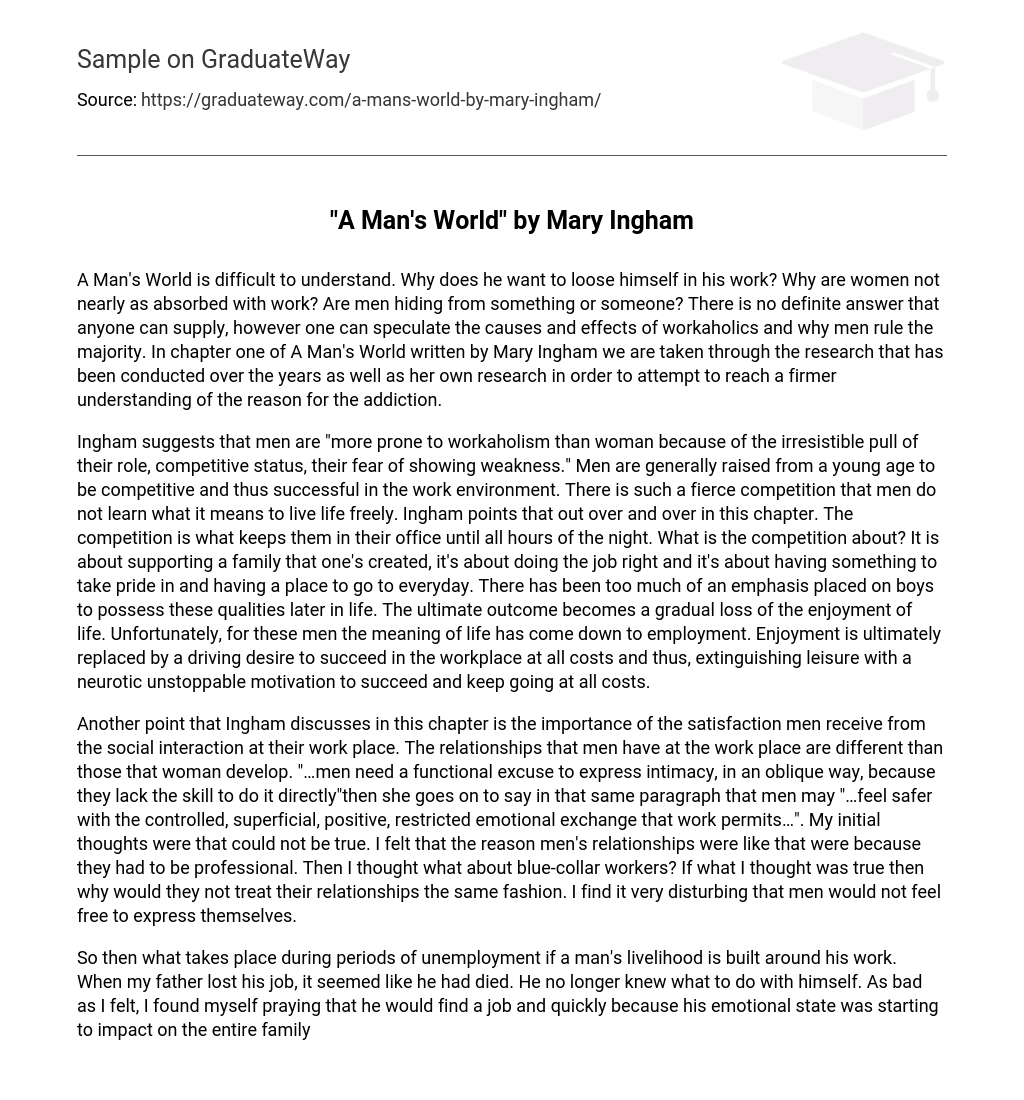A Man’s World is difficult to understand. Why does he want to loose himself in his work? Why are women not nearly as absorbed with work? Are men hiding from something or someone? There is no definite answer that anyone can supply, however one can speculate the causes and effects of workaholics and why men rule the majority. In chapter one of A Man’s World written by Mary Ingham we are taken through the research that has been conducted over the years as well as her own research in order to attempt to reach a firmer understanding of the reason for the addiction.
Ingham suggests that men are “more prone to workaholism than woman because of the irresistible pull of their role, competitive status, their fear of showing weakness.” Men are generally raised from a young age to be competitive and thus successful in the work environment. There is such a fierce competition that men do not learn what it means to live life freely. Ingham points that out over and over in this chapter. The competition is what keeps them in their office until all hours of the night. What is the competition about? It is about supporting a family that one’s created, it’s about doing the job right and it’s about having something to take pride in and having a place to go to everyday. There has been too much of an emphasis placed on boys to possess these qualities later in life. The ultimate outcome becomes a gradual loss of the enjoyment of life. Unfortunately, for these men the meaning of life has come down to employment. Enjoyment is ultimately replaced by a driving desire to succeed in the workplace at all costs and thus, extinguishing leisure with a neurotic unstoppable motivation to succeed and keep going at all costs.
Another point that Ingham discusses in this chapter is the importance of the satisfaction men receive from the social interaction at their work place. The relationships that men have at the work place are different than those that woman develop. “…men need a functional excuse to express intimacy, in an oblique way, because they lack the skill to do it directly”then she goes on to say in that same paragraph that men may “…feel safer with the controlled, superficial, positive, restricted emotional exchange that work permits…”. My initial thoughts were that could not be true. I felt that the reason men’s relationships were like that were because they had to be professional. Then I thought what about blue-collar workers? If what I thought was true then why would they not treat their relationships the same fashion. I find it very disturbing that men would not feel free to express themselves.
So then what takes place during periods of unemployment if a man’s livelihood is built around his work. When my father lost his job, it seemed like he had died. He no longer knew what to do with himself. As bad as I felt, I found myself praying that he would find a job and quickly because his emotional state was starting to impact on the entire family.. It was exactly like Ingham had described. It was devastating to him not to have a place to go. He immediately felt like a failure unable to support his family and unable to meet his own expectations as well and, he experienced the humiliation that coincides with unemployment.
It is very sad to see men loose their lives to their occupations. What is most interesting is that this appears to be most prevalent among those in the western cultures and does not segregate out any type of occupation. Simply put, it appears to be the fact that men are raised to have certain values as are woman. In the case of men in the work force however we can see how these values have become misguided.





